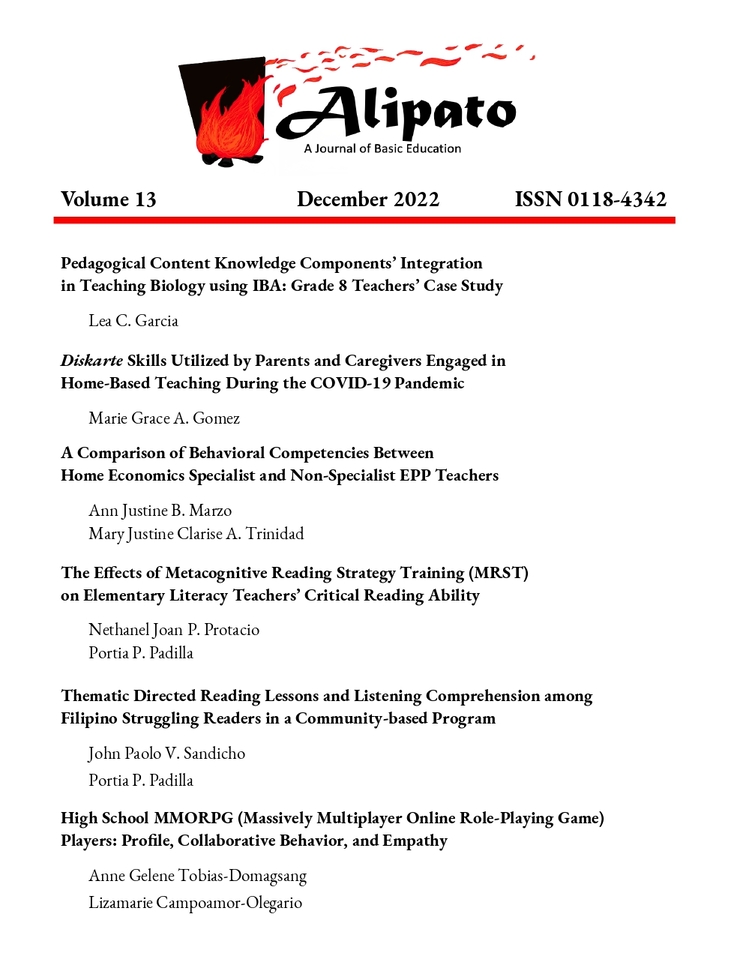The Effects of Metacognitive Reading Strategy Training (MRST) on Elementary Literacy Teachers’ Critical Reading Ability
Abstract
Some studies among literacy teachers revealed inadequate comprehension skills, suggesting the need to examine their knowledge and use of reading strategies and reading skills. This quasi-experimental study determined whether metacognitive reading strategy training (MRST) intervention would improve teachers’ critical reading ability. Eleven public school elementary literacy teachers from southern Philippines completed 12 intervention lessons implemented over 63 sessions (96 hours) conducted at the school’s professional learning community. The lessons, which adopted the explicit teaching procedure, focused on the key strategies Making Inferences, Making Judgments, Monitoring and Clarifying, and Summarizing. Applegate et al.’s (2008) Critical Reading Inventory (CRI) measured changes in critical reading ability. Wilcoxon signed-rank test results showed a significant increase in overall CRI score and subscale scores for literal and evaluative comprehension, but not for inferential comprehension. The comprehension difficulty type known as “Imprecise concept” in relation to things and events was found to be the main cause of difficulty in forming inferences. This difficulty came with the inability to synthesize information correctly from different parts of the text. Overall, explicit instruction of metacognitive reading strategies effectively improved participants’ critical reading ability. School-based professional development interventions can be an effective avenue for improving literacy teachers’ knowledge and skills in reading.


